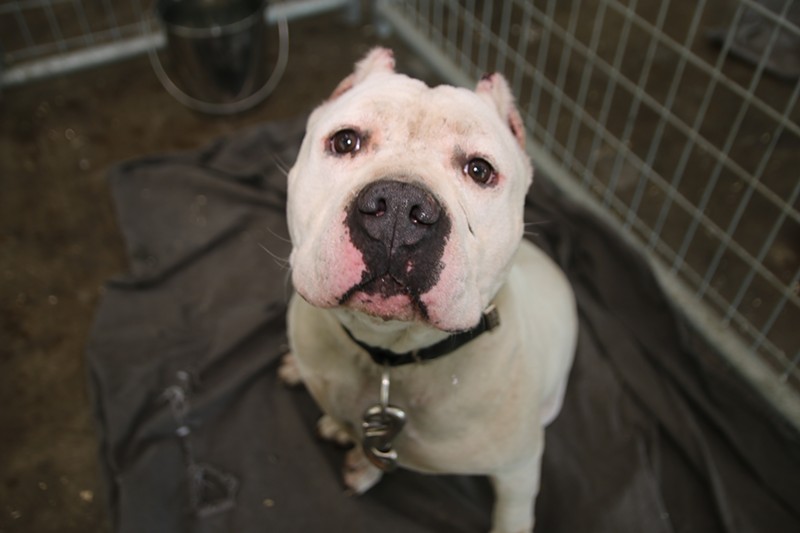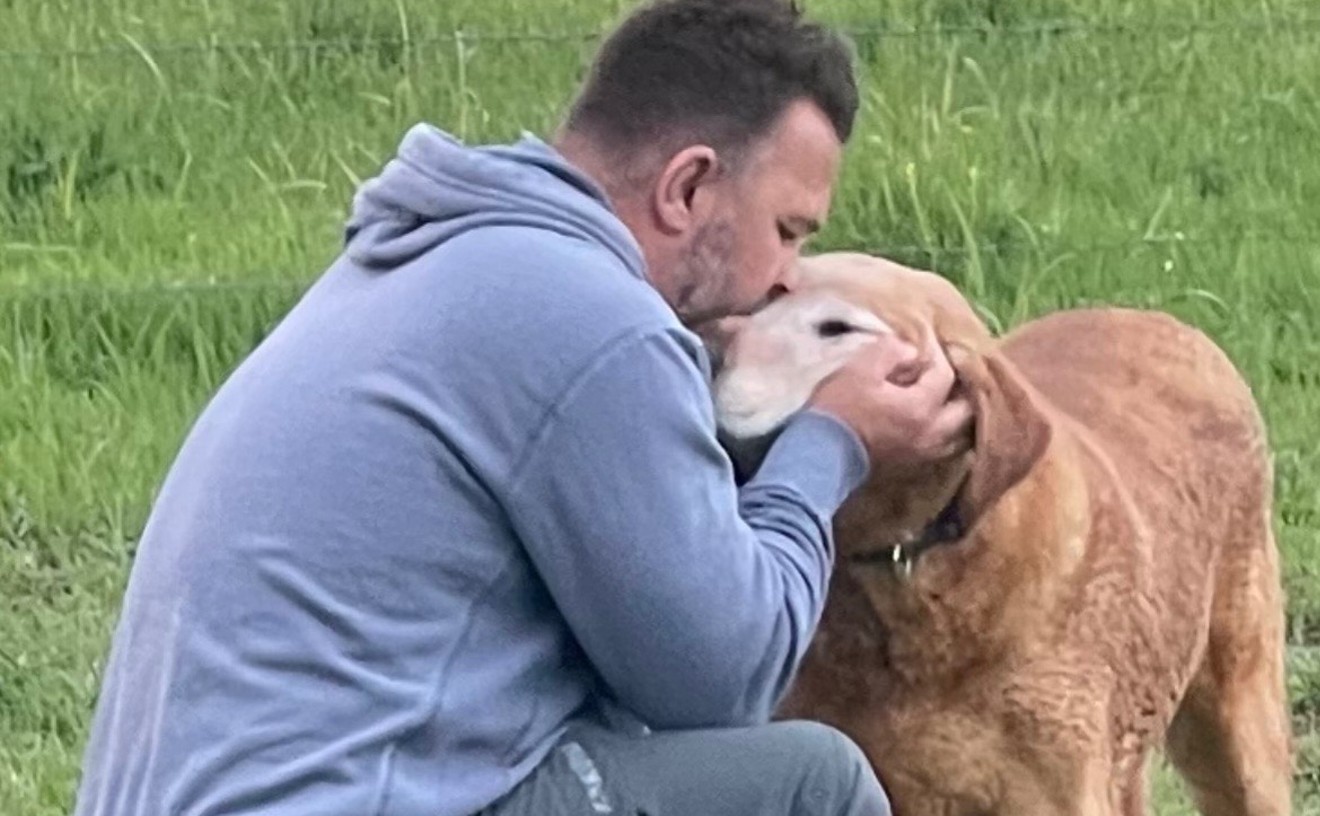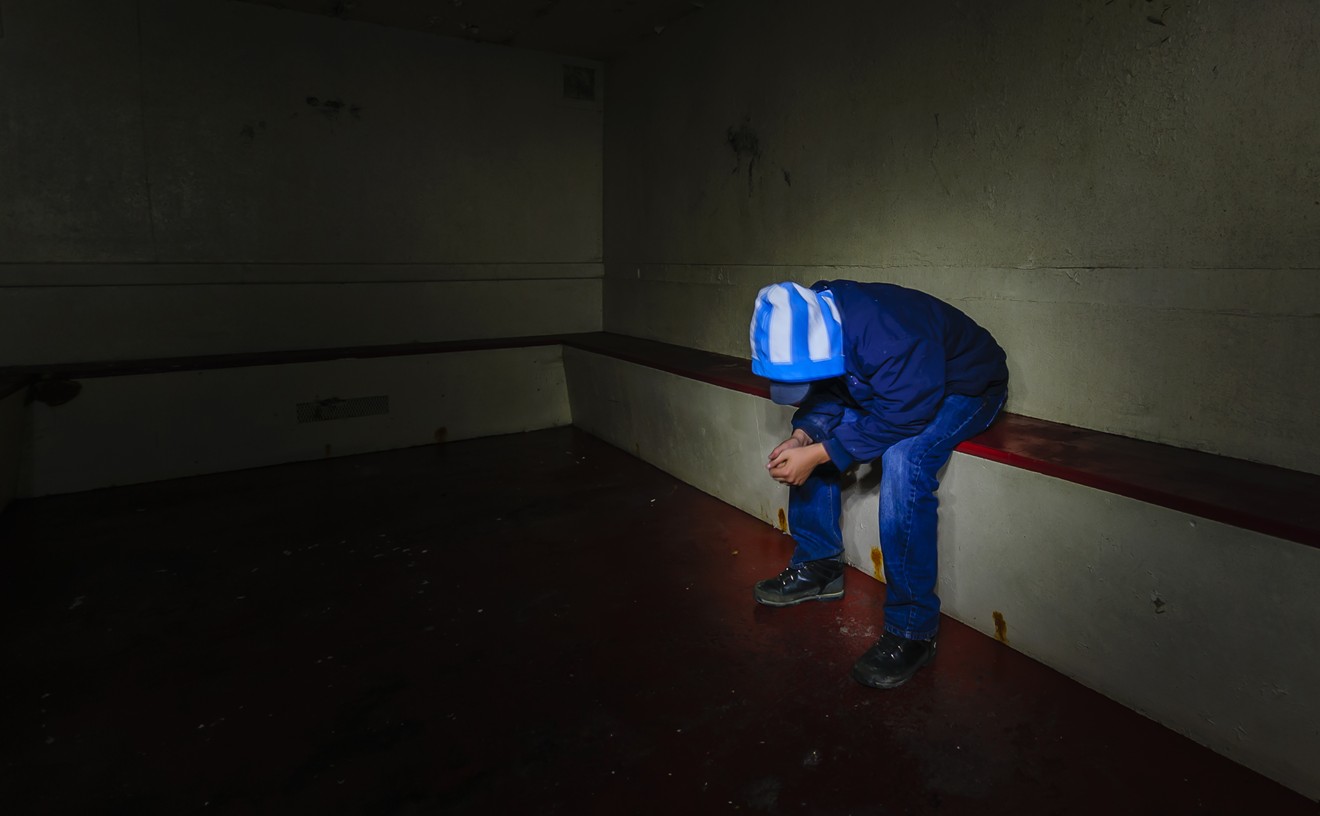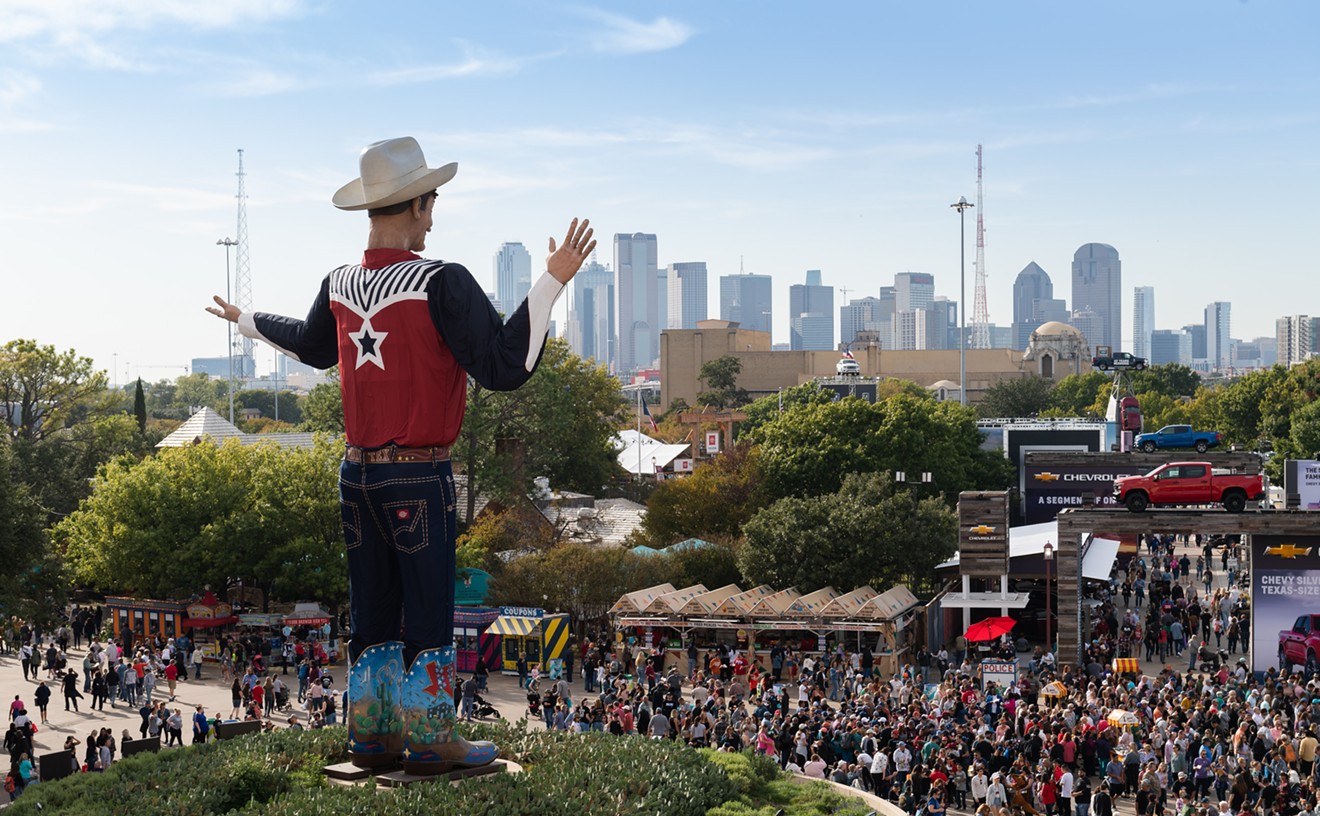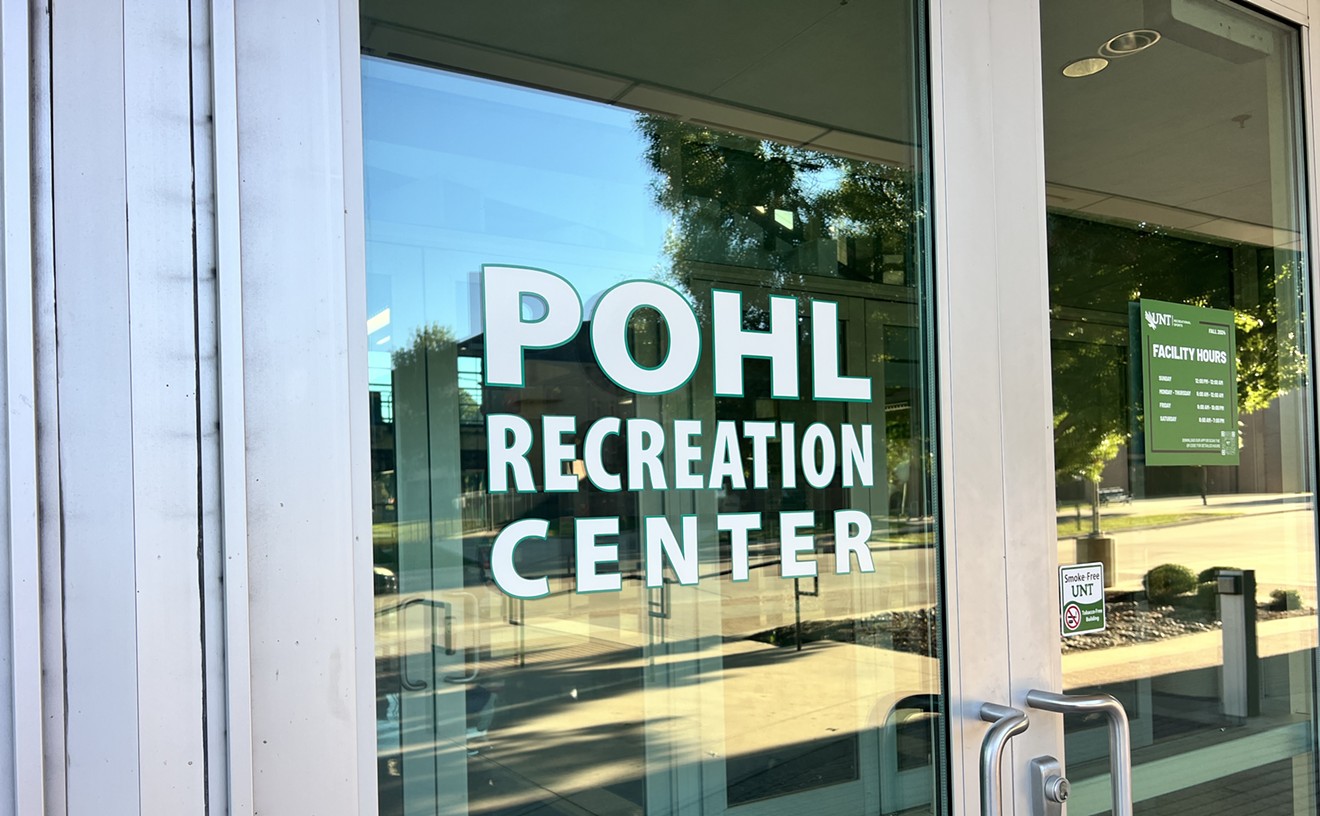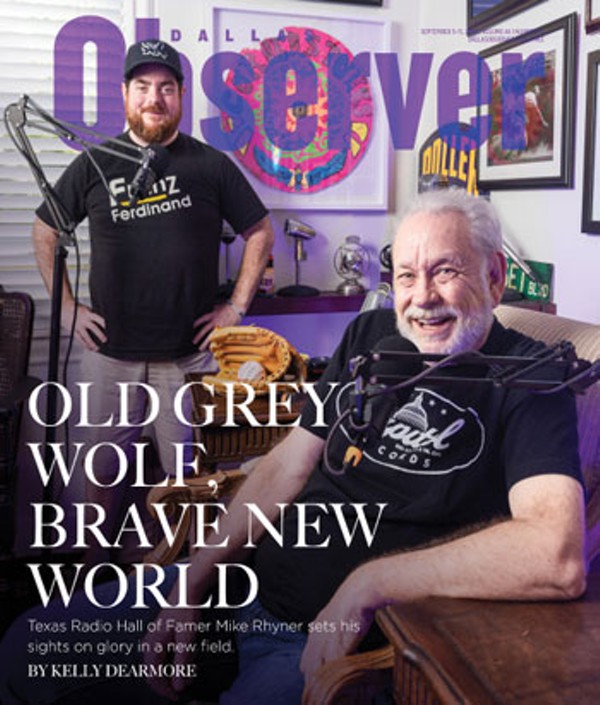Staff and volunteers at the shelter are currently having to double up dogs in kennels to compensate for the overage. That’s why DAS is calling on the community to adopt, foster, volunteer or donate to the shelter to help find positive outcomes for every placeable pet, meaning the pet is not euthanized. All pets are currently free to adopt. They’re spayed/neutered, vaccinated and microchipped. Pets also come with a voucher for a free veterinary visit.
Sarah Sheek, the assistant general manager over community engagement at DAS, said the shelter is looking to find homes for as many pets as possible. But on average, the shelter takes in some 57 dogs and cats every day and is able to find positive outcomes for only 41 animals per day.
Mary Martin, assistant director of DAS, said being over capacity can have numerous effects on the animals at the shelter. When the shelter is at or below capacity, the dogs have a full kennel, with a place to sleep, eat and go to the bathroom if they can’t be taken out. Now, dogs are being housed in half kennels. “That adds stress to a dog,” Martin said. “Being in a box to begin with is a very stressful situation. Then if you make the box smaller, that adds to stress. When you add to stress, that also adds to their inability to fight off disease.” Then, disease spreading starts to become an issue at the shelter, Martin said.
She said it also just makes the work harder on the team at DAS. Martin said the team likes to be able to take the dogs out and spend time with them, but with limited space, this is tough. “Trying to get the facility looking good for the public is more difficult and that adds stress to the team because we want to look good for the public and smell good, but it’s really hard to keep up with it,” Martin said.
When the shelter is over capacity, it’s usually with large dogs because it’s harder to find people who can adopt them. “Our small dogs come in and go right back out with a family,” Sheek said. “They move through the shelter very quickly, but our larger dogs are harder to place.” Additionally, for the first time since she’s worked at DAS, the shelter is having trouble placing puppies. “We have so many puppies in the facility that are waiting for homes — more puppies than we’ve seen in the past,” Sheek said. “So, it’s becoming an issue with large dogs and puppies as well.”“We’re trying to get to the bottom of it ourselves." – Mary Martin, Dallas Animal Services
tweet this
Martin said this is a very unfortunate national trend. “Dogs over 40 pounds are staying longer in shelters,” she said. “And when that length of stay is longer, it just adds to the capacity issues.”
Asked why this is such a consistent problem, Martin said it’s difficult to give a reason that’s backed by facts and statistics. Anecdotally though, she thinks it comes down to housing instability, at least in part. “We feel as though we’re in a housing situation that is difficult for people,” Martin said. Finding housing for big dogs is hard on its own, but breed restrictions and insurance restrictions can make it even harder.
Martin said that when people come in looking to relinquish a pet, the shelter asks what has brought them there. “We’re trying to get to the bottom of it ourselves,” Martin said. It’s often housing issues that bring people in, or sometimes, it’s a lack of veterinary care. “I think a majority of it looks to be loss of housing,” she said.
“Evictions factor in for sure,” Sheek said. “We have a good number of animals enter the facility because their owner is being evicted.” Sometimes people also aren’t able to bring their dogs when they move because of breed or size restrictions or because they can’t pay pet deposits.
There are resources out there to help people keep their pets. But, Sheek said, “Unfortunately when you don’t know exactly where you’re going to be sleeping, it can be very hard to find a solution that allows you to keep your animal.”
Capacity issues at the shelter can also come down to the kind of dogs at the facility.
“When you look closely at the dogs that we’re talking about, most of them are larger, short-haired dogs that some might construe as pit-bull mixes,” Martin said. “Often they’re not. They could be lab mixes. … If every one of those dogs were fluffy, poodley looking things, we wouldn’t have the challenges that we have.”
It’s hard to solve the problem partially because there’s not enough data about the dilemma. Without more data, "the firehose of need continues to be pointed at us and we’ll be in this situation for what feels like forever,” Martin said.
Before the pandemic, the shelter was able to transport larger numbers of animals to other facilities across the country. Now those facilities are having capacity issues of their own.
Martin said that her team does everything it can to set up potential new pet families with an animal best suited for them. “We want people to feel really comfortable to come down, and when they do come down, if they have any questions, problems or concerns, that they actually ask,” Martin said. “We don’t want anyone walking out of the building without a pet if we can prevent it. We are here to help to be matchmakers.”
You can see the shelter's available pets at bedallas90.org. Pets can be adopted or fostered in person at DAS’ main shelter at 1818 N. Westmoreland Road. Hours are Monday, Tuesday, Thursday and Friday, 11 a.m. – 7 p.m.; Wednesday, 1 – 7 p.m.; and Saturday and Sunday, 11 a.m. – 6 p.m.

